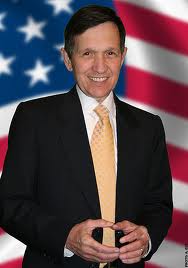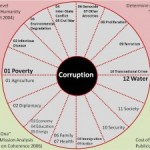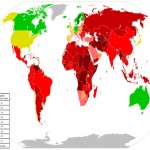
Phi Beta Iota: When did it go out of style for warriors to speak the truth and only the truth? Lies kill our own and dishonor our Republic. It is time for integrity to come back into being. Advanced Cyber/Information Operations (IO) are about truth & trust. No amount of courage at the tactical level can overcome a dishonest, unaffordable, intellectually-bankrupt strategy.
Deluding ourselves from one failure to another
By COLONEL DOUGLAS MACGREGOR
American forces invaded Afghanistan more than nine years ago, and we still don't know whom we're fighting. It's hard to know who did the better job of playing us for fools a few weeks ago – the Afghan who passed himself off as the “moderate” Taliban leader, who was rewarded with American cash for his performance, or Hamid Karzai.
. . . . . . .
With the lion's share of Iraq‘s southern oil fields in Chinese hands and the Kurdish nationalists determined to control the country's largest oil reserves, more fighting in Iraq is inevitable. This sort of thing would almost be funny, in an insane sort of way, if such military leadership did not result in the pointless loss of American lives, undermine American strategic interests and erode the security and prosperity of the American people – the things the nation's four-stars are sworn to defend.
. . . . . . .
When the budget ax falls, many inconvenient facts will come to light, unmasking the great deception that America confronted a serious military threat in the aftermath of Sept. 11, a deception promoted and fostered by politicians and ambitious generals who sought to gain from it. It will horrify and discourage Americans to learn we've bankrupted ourselves in a fight that always was analogous to clubbing baby seals. From 2001 onward, we never confronted armies, air forces or capable air defenses. Bottom line: There was no existential military threat to the United States or its NATO allies emanating from Afghanistan or the Middle East. There is none today.
Read the entire righteous piece….
For the time being, no one will say these things. It's easier to go, in Winston Churchill's words, “from failure to failure without loss of enthusiasm” and nurture the money flow to Washington.
Retired Col. Douglas Macgregor, a decorated combat veteran, is executive vice president of Burke-Macgregor Group. His newest book, Warrior's Rage, was published by Naval Institute Press. See also his earlier books, Breaking the Phalanx and Transformation Under Fire.
Why Can’t Europe Avoid Another Crisis? Why Can’t the U.S.?
By Simon Johnson (bio), Baseline Scenario, 30 December 2010
Our leading bankers looted the state, plunged the world into deep recession, and cost us 8 million jobs. And now many of them stand by with sharpened knives and enhanced bonuses – also most willing to suggest how the salaries and jobs of others can be further cut. Think about the morality of that one.
Will no one think hard about what this means for our budget and our political system until it is too late?






